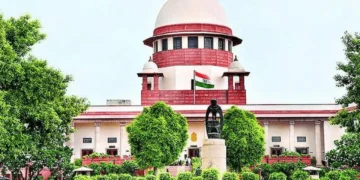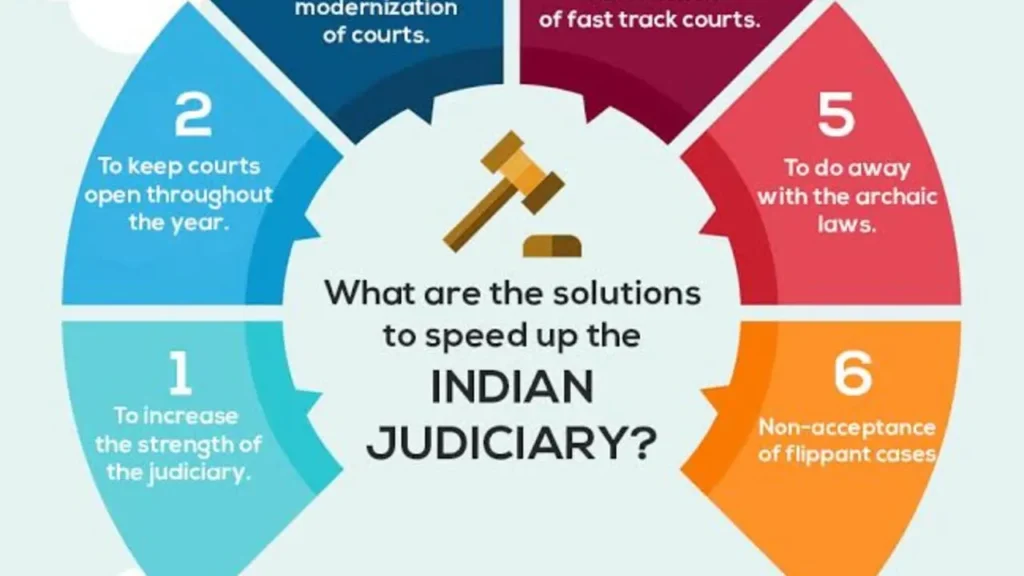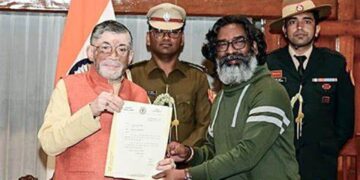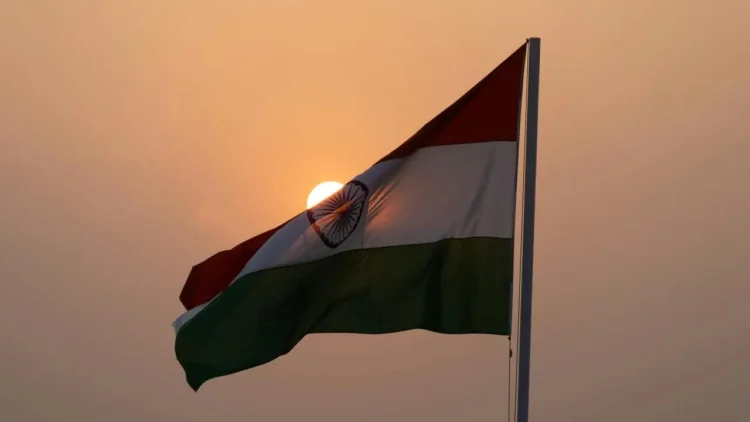India’s Supreme Court is the apex judicial body, holding the ultimate authority of appeal and review as stipulated by the Constitution of India. Functioning as the highest constitutional court, it wields the pivotal power of judicial review, ensuring adherence to the constitutional principles of Supreme Court system laws across all legal matters.

Read Also: Fifth Phase of Lok Sabha Elections Sees 23.66% Turnout Amid Tight Security Measures
Within India’s federal framework, a singular and integrated judicial system is established, characterized by a three-tier structure comprising the Supreme Court, High Courts, and Subordinate Courts. The Supreme Court operates at the pinnacle, serving as the final arbiter in legal disputes of national significance. At the same time, the High Courts and Subordinate Courts fulfill complementary roles in dispensing justice at the state and district levels, respectively.
In its nascent stages, the Constitution of India initially outlined a Supreme Court comprising a Chief Justice and seven judges. During the formative years, the Court had a full bench convening to hear cases, reflecting the relatively manageable caseload.
However, as the judicial responsibilities burgeoned and the caseload surged, Parliament responded by progressively augmenting the number of judges, including the Chief Justice. This expansion unfolded over several milestones: from the original eight judges in 1950 to 11 in 1956, 14 in 1960, 18 in 1978, 26 in 1986, 31 in 2009, and eventually reaching 34 in 2019. These increments underscore the evolving demands placed on the Supreme Court and its imperative to effectively address the growing complexity and volume of legal matters within the ambit of the Supreme Court System Laws.
What is the Organizational Structure of the Supreme Court: Supreme Court system laws
In the Supreme Court System Laws, the evolution of the Supreme Court of India’s composition and functioning reflects a strategic response to the increasing complexities within the legal landscape. As the number of judges expanded, the court adopted a structured approach, with judges commonly sitting in smaller division benches or convening in larger constitution benches as necessary.
Notably, matters about the interpretation of the Constitution, as mandated by Article 145, are entrusted to a minimum five-judge bench, underscoring the gravity and intricacy of such cases. A significant milestone in this regard is the 1973 Kesavananda Bharati v. State of Kerala case, where a record 13-judge bench was constituted. This case delved into the foundational question of parliamentary authority to amend the Constitution, ultimately shaping the Basic Structure doctrine, a pivotal facet of Indian constitutional jurisprudence.
The emphasis on constitution benches and the procedural adaptations within the Supreme Court System Laws exemplify the court’s commitment to robust legal scrutiny and preserving constitutional integrity.
The eligibility criteria for a judge of the Supreme Court of system laws in India, as outlined in Article 124 of the Constitution, are stringent and purposeful. Firstly, the individual must be an Indian citizen. The age limit does not exceed 65 years, ensuring a balance between experience and retirement.
Moreover, the potential judge must fulfill one of the following conditions:
- Served continuously as a judge in one or more high courts for at least five years.
- Practiced as an advocate in one or more high courts for at least ten years.
- Recognized as a distinguished jurist, a decision made at the discretion of the President, as per the authority conferred by Article 124.
These criteria underscore the importance of experience, legal insight, and a deep understanding of judicial processes and principles in appointing judges to the highest echelon of the judiciary. This emphasis on qualifications and experience ensures that the Supreme Court System Laws are upheld with integrity and competence, safeguarding the judiciary’s crucial role in the Indian legal framework.
Articles 124 (2) and 217 of the Constitution govern the appointment and transfer of judges to the Supreme Court and High Courts in India, respectively. However, the process through which these appointments and transfers occur has evolved significantly, leading to the establishment of the Collegium System.

The Collegium System is a method of appointing and transferring judges developed through judicial pronouncements by the Supreme Court rather than being defined by an Act of Parliament or a specific provision of the Constitution. This system has undergone a series of evolutionary phases:
- The First Judges Case 1981 marked the initial judicial intervention in judicial appointments.
- The Second Judges Case in 1993 marked a significant milestone. The Supreme Court introduced the Collegium system, giving the judiciary a more significant role in the appointment process.
- The Third Judges Case in 1998, which arose from a reference by the President under Article 143 of the Constitution, further expanded the Collegium system. It transformed the Collegium into a five-member body, comprising the Chief Justice of India (CJI) and four of his senior-most colleagues, vested with the responsibility of recommending appointments and transfers of judges.
This evolution of the Collegium System within the Supreme Court System Laws framework highlights the judiciary’s proactive role in shaping its functioning. It underscores the significance of judicial independence and transparency in appointing judges to higher courts.
Removing a judge from office in India, as outlined in the Constitution and the Judges (Inquiry) Act of 1968, is a meticulously structured procedure to ensure fairness and accountability within the judiciary. A judge can be removed on the grounds of proven misbehavior or incapacity, subject to the approval of Parliament through impeachment. For impeachment to proceed, a majority of the total membership of each house of Parliament must be in favor, with not less than two-thirds of the members present and voting.
Initiating impeachment proceedings requires a substantial threshold, where at least 50 members of the Rajya Sabha or 100 members of the Lok Sabha must issue the initial notice per the Judges (Inquiry) Act, 1968. Following this, a judicial committee is constituted to frame charges against the judge, oversee a fair trial, and submit its report to Parliament. This comprehensive process, designed within the Supreme Court System Laws framework, underscores the gravity of judge removal, ensuring due process and parliamentary oversight in matters of judicial accountability.
To get more out of our exclusive news, Join us on our WhatsApp Channel, Facebook, and Instagram.















